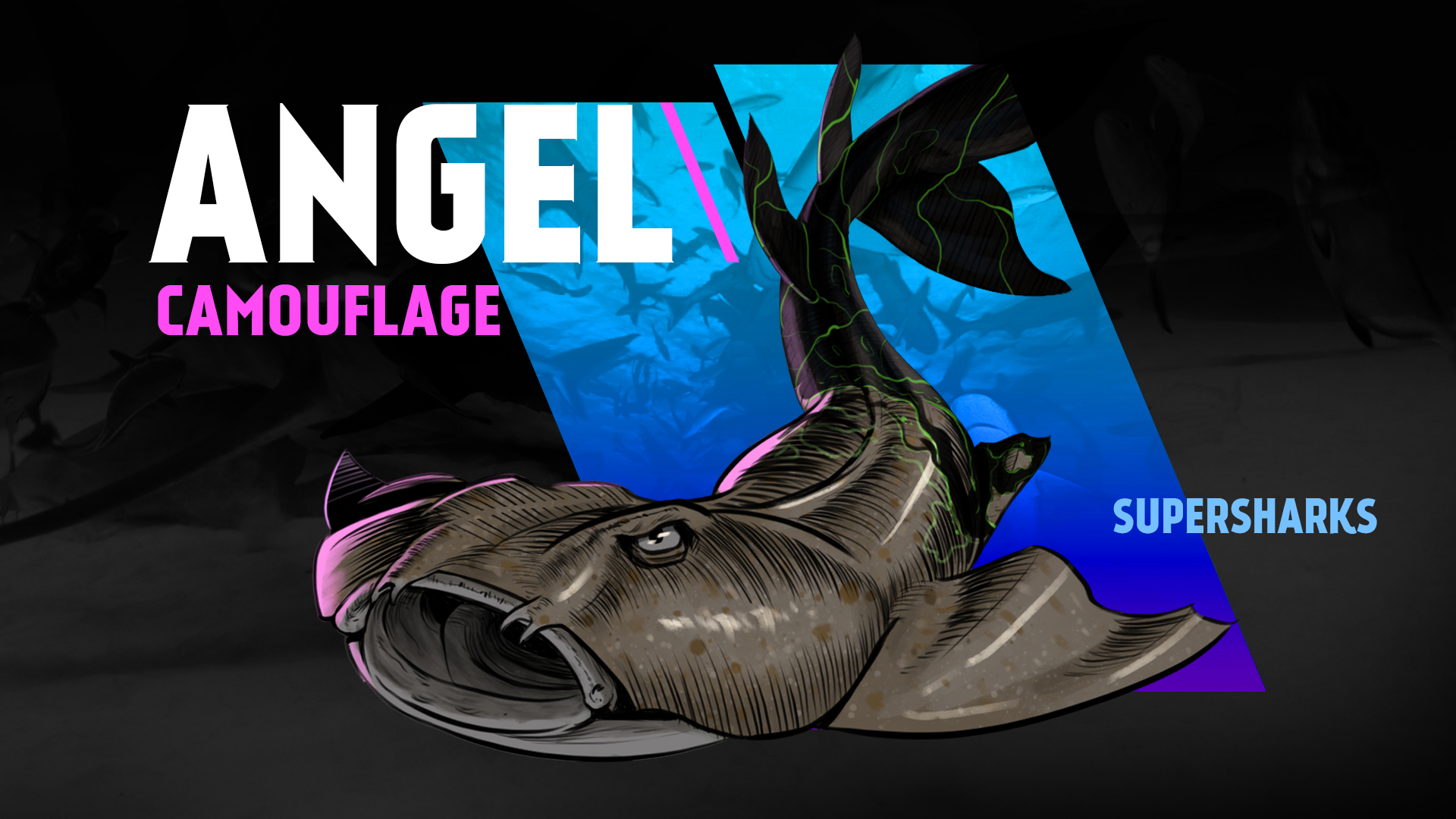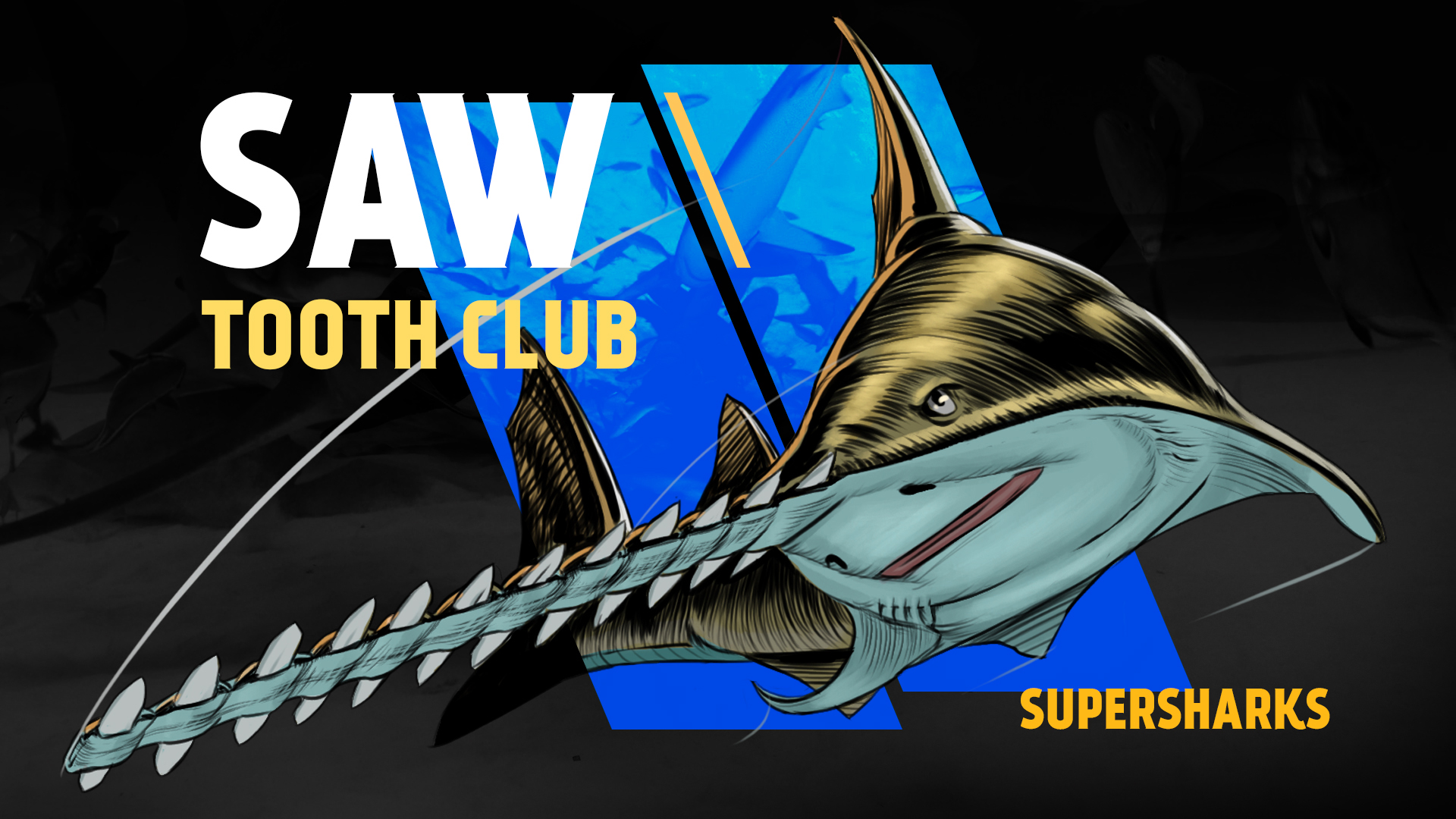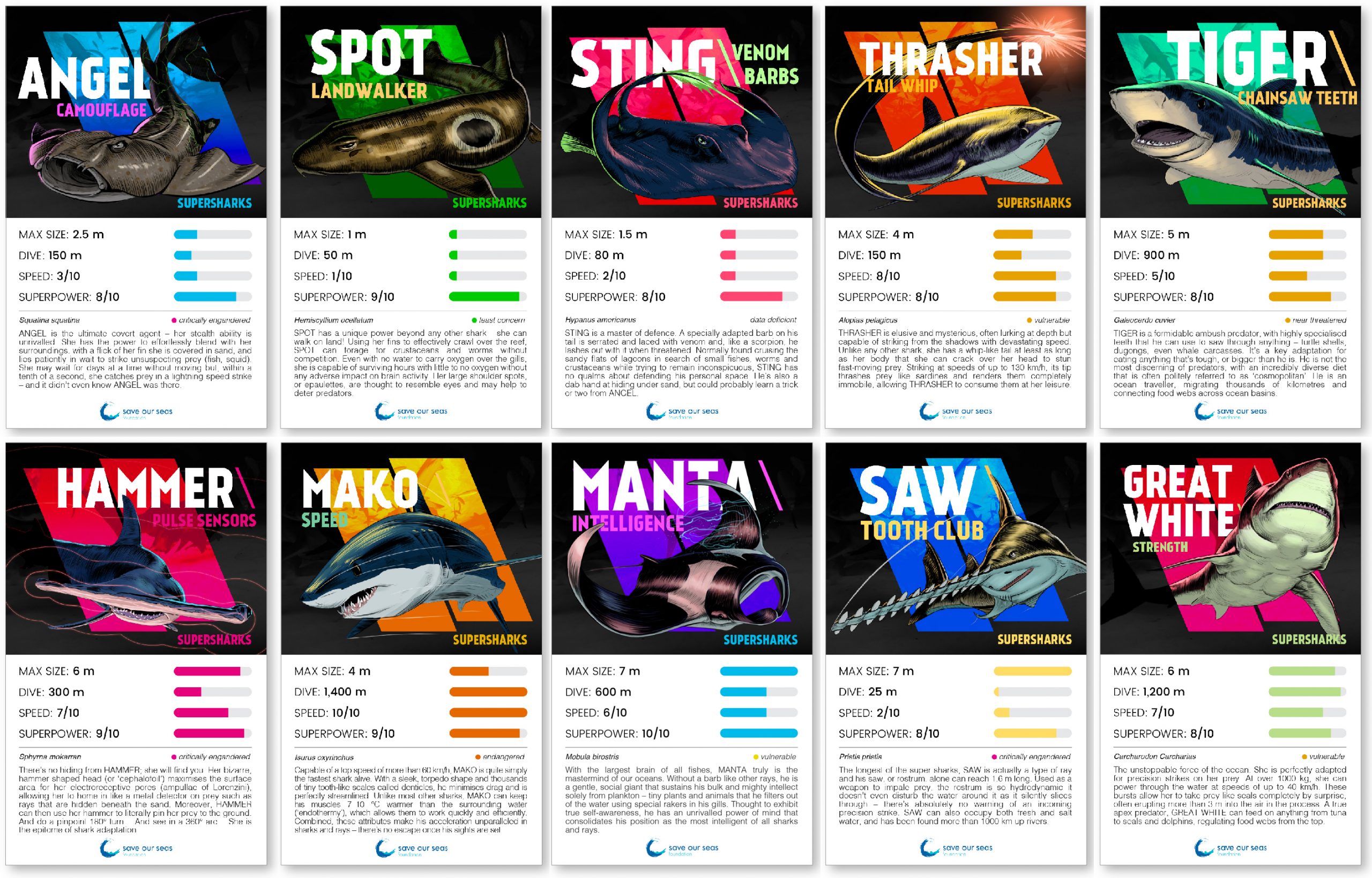SuperSharks
Whether you call the coastline home or live miles from the boundary where waves lap land, one fact rings true for us all. In the words of a marine biologist and renowned conservationist Sylvia Earle, “Everyone, everywhere is inextricably connected to, and utterly dependent upon, the existence of the sea.”
From rainfall and weather, to food, to the oxygen we breathe, our existence hangs in the balance of this vast life support system. On World Oceans Day, we’re celebrating a group of ancient allies that have been protecting this precious natural resource for over 400 million years.
Sharks are true oceanic superheroes, and yet, many of us fear them. Some of that fear is understandable – there’s a reason experts don’t condone shark riding – but while sharks aren’t cuddly creatures, they’re also not the indiscriminate killers they’re made out to be.
There are more than 500 known species of sharks, and many members of the group look very little like the great white of “Jaws” fame. This number increases to over 1,200 species when rays are included, such as manta rays and stingrays, highlighting the incredibly diversity of this group. Most sharks pose no threat to humans – what we should fear most is losing them.
Overfishing, climate change, and habitat loss have left a staggering quarter of the world’s sharks and rays threatened with extinction. Unfortunately, incomplete catch data makes it hard to know exactly how many sharks are caught in fisheries, but it has been estimated that as many as 100 million sharks are killed every year (both in targeted fisheries and as bycatch). While devastating, more important than the actual value is that these levels of fishing are unsustainable – quite simply, sharks are being are being caught faster than they can reproduce.
If we’re going to protect these stewards of the sea, we must replace fear with curiosity. One of the easiest – and arguably most important – things you can do for sharks, is learn more about them. Get your toes wet by collecting all ten SuperShark cards featured below!
Meet all 10 SuperShark heroes here, and download all 10 SuperShark cards here.
How do SuperSharks keep our oceans in balance?
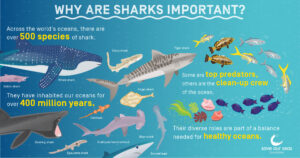
Artwork by Jamy Silver © Save Our Seas Foundation.
Like other predators do on land, sharks help keep the delicate ocean ecosystem in balance. While some species like the white shark are famously apex predators, the majority of sharks are so-called ‘meso-predators’ and occupy mid-levels in marine food webs, but they still play important roles in keeping marine ecosystems stable and functioning properly. By limiting numbers of the animals they eat, they, in turn, ensure the prey of those species are kept in check, and so on. And because they’re intimidating to their prey, the presence of sharks alone can move other animals around.
On coral reefs where sharks are few, we can see a boom in mid-sized carnivores. Reefs serve as nursery habitat for many species – including those important to our fisheries. Having extra mouths around in the absence of sharks can be a problem for youngsters sheltering amongst the coral.
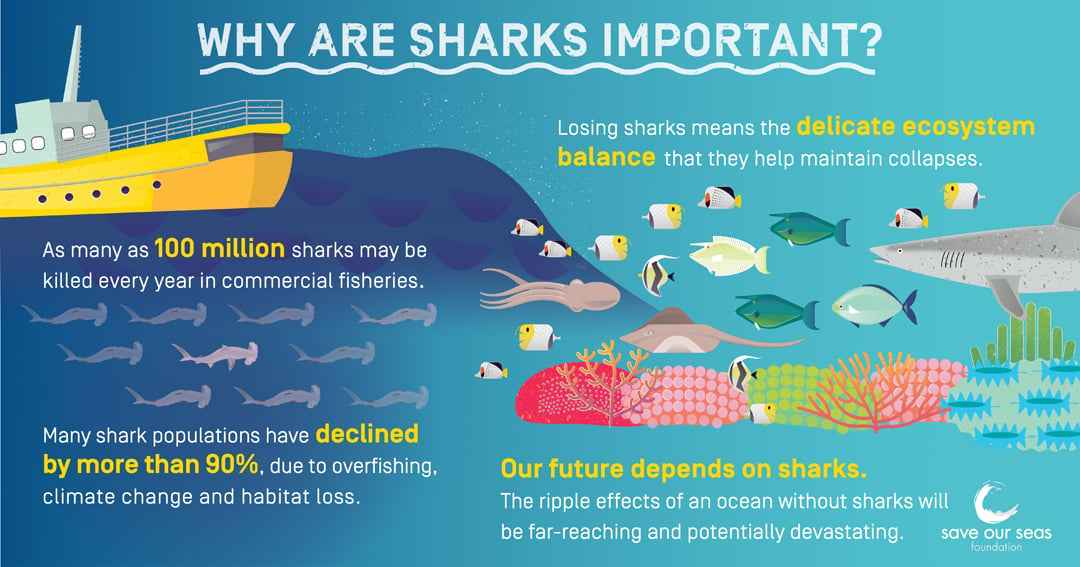
Artwork by Jamy Silver | © Save Our Seas Foundation
Sharks also serve as the ocean’s cleanup crew by removing sick or injured individuals, which make for easy meals. This keeps only the healthiest of their prey reproducing. When sharks feed, leftover lunch provides food for scavengers, as does the nutrient-rich excrement they leave behind. (Yes, some animals eat shark poop!)
By keeping seagrass meadows healthy, sharks help fight climate change. Not only do seagrass meadows shelter our coastlines, but they also sequester carbon. The marine plants occupy less than 0.2 per cent of available ocean real estate, and yet, they’re responsible for storing more than 10 per cent of all carbon buried in the big blue each year.
Studying sharks may even influence medical research. While it’s a myth that sharks can’t get cancer, the fish do possess superhuman healing abilities. Understanding the mechanisms behind that dermal damage control may unlock breakthroughs in human healthcare.
How can you help SuperSharks?
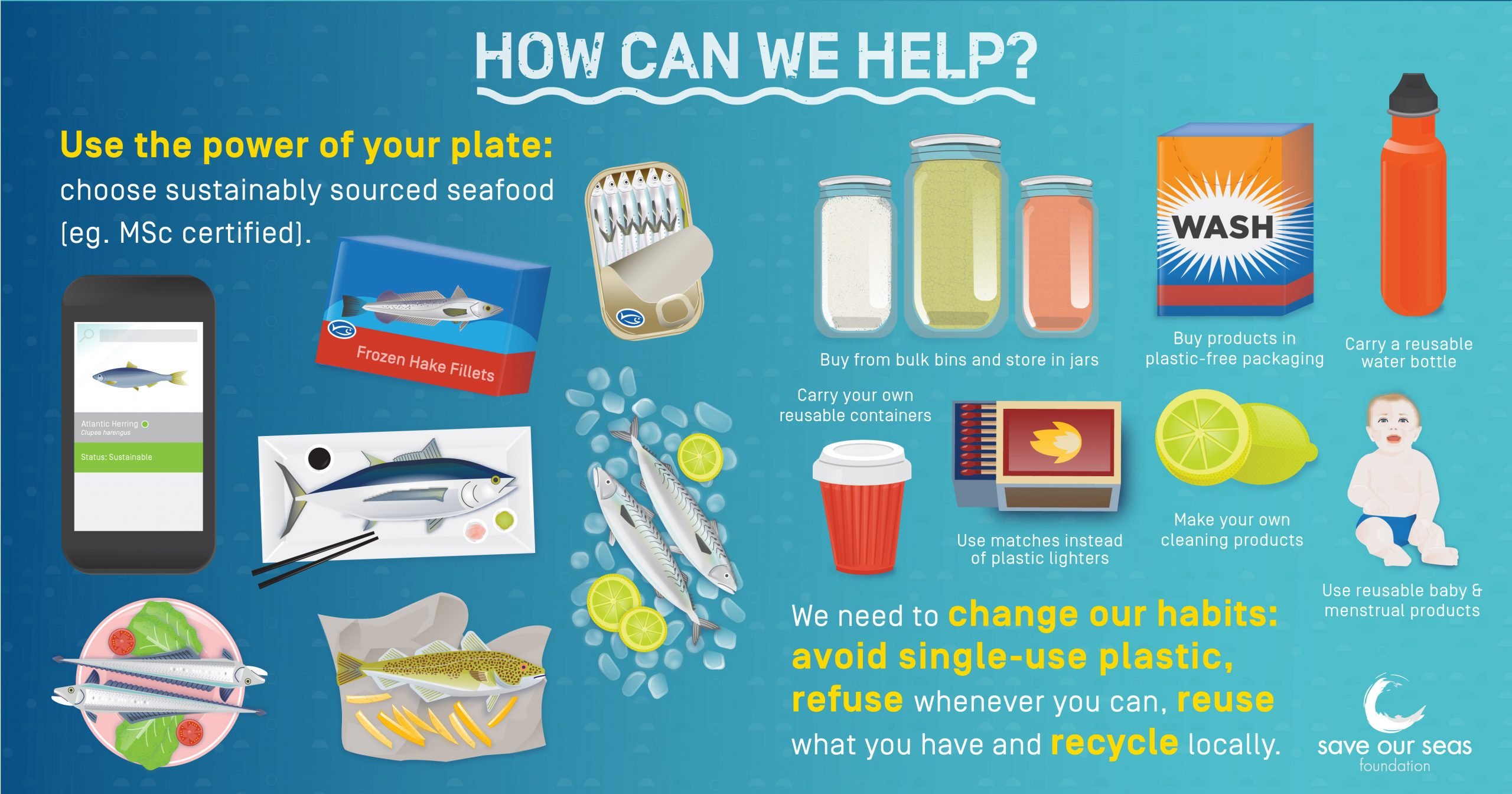
Artwork by Jamy Silver | © Save Our Seas Foundation
An estimated 300 million tons – roughly the weight of the entire human race – of plastic waste is produced every year around the world. And like countless marine animals, sharks are known to gobble up our garbage. Everything from crisp packets, to butcher’s bags, have turned up in their bellies. Keep this in mind when you make decisions at the register, and opt for plastic-free packaging whenever possible.
There’s something else you can do at the shops: ask where your food is from! The majority of experts believe sustainable shark fishing is possible. If you consume any marine fare, chose ocean-friendly options to keep overfishing at bay, and prevent damage to sensitive habitat.
Spending time with sharks in the wild offers a double dose of support. Funds brought in by ecotourism efforts often aid the protected areas that keep sharks safe. What’s more, the industry provides an alternative to communities where illegal shark fishing is a means of survival. Advice on picking a responsible, shark-friendly tour can be found at the bottom of this article.
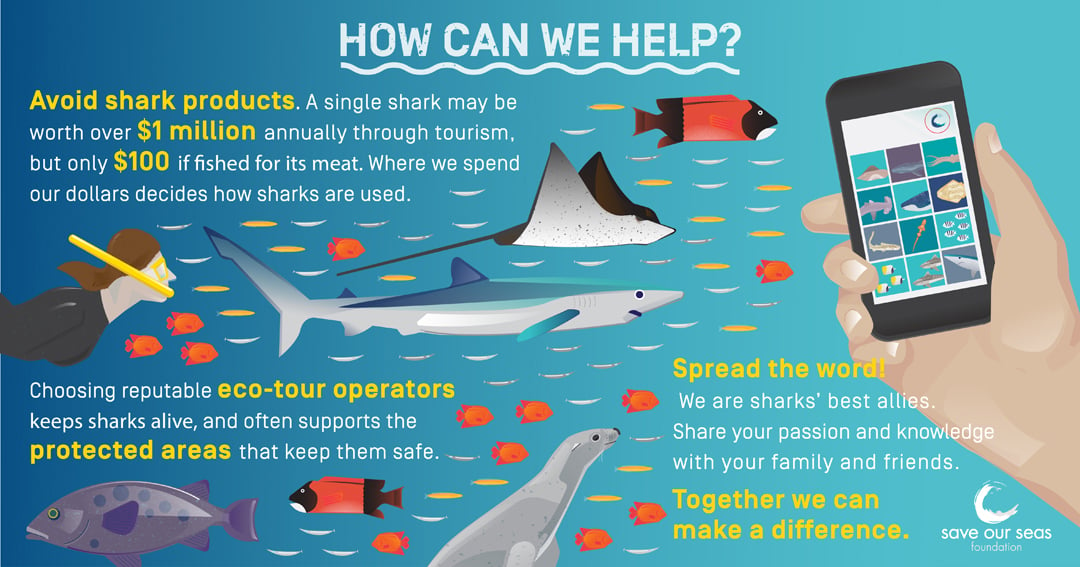
Artwork by Jamy Silver | © Save Our Seas Foundation
Don’t let the fun stop here! Once you’re familiar with our World Oceans Day heroes, get to know the rest of the family. Learn about the sharks in your area, be they gentle giants like whale sharks and basking sharks, or pint-sized predators like catsharks and dogfish.
Download the SuperShark playing cards here, or find out more about each one here.

